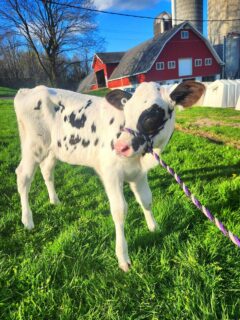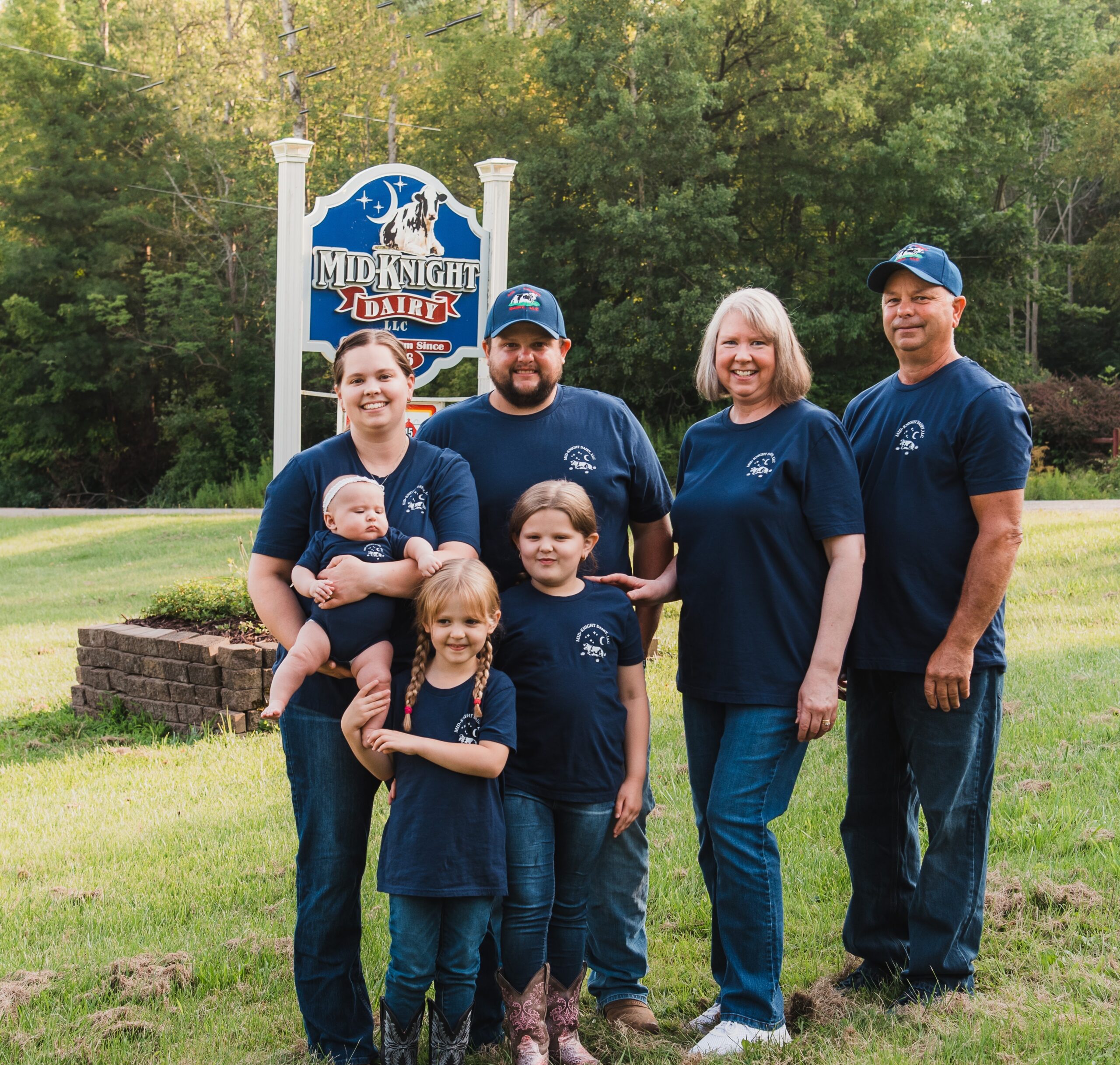Dairy Climate Adaptation and Mitigation Fellow Julia Olmstead shares the importance of sitting down and making adaptation and mitigation plans for your farm.
During the Dairy Climate Adaptation and Mitigation Fellowship (Dairy CAMF), Julia Olmstead worked to improve her farm’s manure management and silage storage. Julia is a co-owner and operator of Mid-Knight Dairy, LLC, a 300-acre dairy farm in Jamestown, New York. Her dairy milks 140 Holstein cows and raises 130 heifers. Her focus is on milk production and quality. In recent years, Mid-Knight Diary has been utilizing technology such as robotics to achieve that goal. In addition to efficient dairy production, her farm also produces haylage and corn silage by using “time, money, and soil-saving techniques such as no-till corn planting.”
Julia’s advisor, Tim Terry, recommended that she participate in the fellowship program. Before participating in the program, her farm was constructing a manure storage facility. Erosion has long been a concern in manure management, a problem that is becoming increasingly significant with the increasing frequency of damaging storms. Julia hoped that the Dairy CAMF program would teach her how to prepare her farm for future storms.
As Julia created her climate resiliency goals, she decided that her projects needed to “make sense both financially and for climate adaptation and mitigation.” One of the projects she has implemented since the program began has achieved both. The construction of a modernized manure storage pit allowed her farm to save approximately $20,000 in fertilizer in the first year. In the future, Julia hopes to eliminate her farm’s use of ag-bags to store  silage, noting that they are both wasteful in terms of the amount of plastic used and the amount of forage wasted due to spoilage. To achieve this, she plans to complete the construction of bunk silos. “We’ve got half of it done, but we still need to pour more cement and get some walls.” Julia is excited about this construction and has calculated that the silos’ construction will result in a $15,000 increase in net income per year. These bunk silos will also allow for a more consistent forage that will increase milk production for Mid-Knight Dairy.
silage, noting that they are both wasteful in terms of the amount of plastic used and the amount of forage wasted due to spoilage. To achieve this, she plans to complete the construction of bunk silos. “We’ve got half of it done, but we still need to pour more cement and get some walls.” Julia is excited about this construction and has calculated that the silos’ construction will result in a $15,000 increase in net income per year. These bunk silos will also allow for a more consistent forage that will increase milk production for Mid-Knight Dairy.
As she reflected on the Dairy CAMF program, Julia concluded that the best part of the fellowship program was being able to sit and plan for the farm’s resilience. She said, “I think as farmers, we get busy doing the day-to-day tasks, and we often don’t sit down and think about the future.” It was invaluable for Jula to gain a better understanding of what her farm needs to succeed against future threats. She mentioned that budgeting has been essential in these adaptation and mitigation plans.
Without the assistance of government grants, Julia thinks future climate-related projects will be challenging to attain due to the low-profit margin nature of agriculture. “I think keeping politicians and the public aware of this is crucial,” she said as she thought about the future of the farming community.The
Climate Adaptation and Mitigation Fellowship (CAMF) is a program of Cornell University and the USDA Northeast Climate Hub. It supports farmers with climate adaptation and mitigation strategies. The program trains farmers and ag advisors to develop and implement resiliency plans for their farms.
Read the full story: Julia Olmstead Success Story

